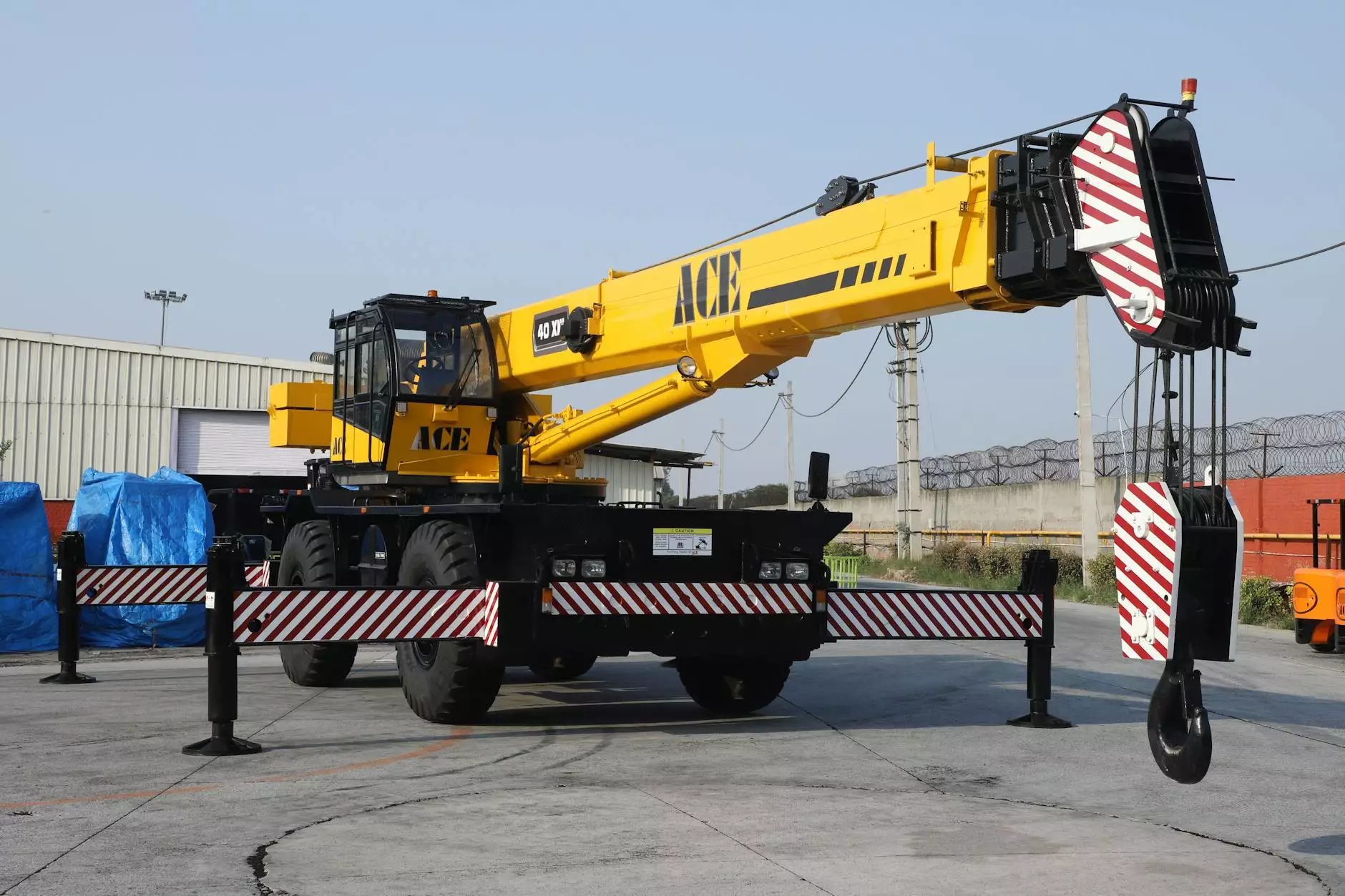Comprehensive Insight into Refrigeration Equipment and Cold Chain Solutions

In today’s *fast-paced world*, maintaining the *integrity of products* through various stages of distribution is crucial. This is particularly vital in sectors such as food and pharmaceuticals, where temperature control directly correlates with product safety and quality. Understanding the significance of refrigeration equipment in the cold chain process is essential for businesses committed to excellence. For comprehensive solutions, look no further than First Cold Chain.
The Cold Chain: A Lifeline for Modern Commerce
The cold chain refers to a *temperature-controlled supply chain* that is essential for preserving perishable goods. It encompasses a series of logistical steps that include transportation, warehousing, and distribution. Without a sophisticated refrigeration system, the cold chain cannot maintain the required temperatures, leading to spoilage and potential losses.
Understanding Refrigeration Equipment
Refrigeration equipment is designed to create and maintain a cold environment suitable for perishable goods. This equipment is crucial not only for storage but also for distribution and transportation. Below are some critical components of refrigeration systems:
- Refrigerators and Freezers: Essential for storage, these units maintain specific temperatures necessary for different products.
- Chillers: Used to cool products during processing or transportation.
- Transport Refrigeration Units: These are specialized units installed on vehicles to transport goods at controlled temperatures.
- Monitoring Systems: Advanced technology that tracks temperature and humidity levels to ensure compliance with safety standards.
Importance of High-Quality Refrigeration Equipment
Investing in high-quality refrigeration equipment is not just a choice; it is a necessity for businesses aiming to stay competitive. Here are some reasons why:
1. Preserving Product Integrity
With reliable refrigeration, products remain fresh and safe for consumption. Failure to maintain appropriate temperatures can lead to bacterial growth, spoilage, and significant financial losses.
2. Regulatory Compliance
Many industries are subject to strict regulations regarding storage and transportation of perishable goods. Quality refrigeration systems ensure compliance with these regulations, reducing the risk of legal issues.
3. Enhancing Efficiency
Modern refrigeration units are designed for energy efficiency, which can lead to lower operational costs. This not only saves money but also contributes to corporate sustainability goals.
4. Consumer Trust
A commitment to quality directly influences customer satisfaction and trust. Businesses known for their reliable cold chain practices build stronger relationships with clients, thereby enhancing brand loyalty.
Innovative Solutions from First Cold Chain
The leadership and expertise displayed by First Cold Chain has set new benchmarks in the cold chain industry. By focusing on innovative solutions, they address the pressing needs of modern businesses:
- Customizable Solutions: Offering tailored refrigeration solutions that fit the unique needs of various industries.
- Advanced Technology: Utilizing cutting-edge technology for monitoring and control, ensuring optimal conditions are maintained at all times.
- Comprehensive Support: Providing end-to-end support, from consultation and installation to ongoing maintenance and technical assistance.
- Energy Efficiency: Their equipment is designed to be eco-friendly, reducing carbon footprints while maintaining performance.
The Future of Refrigeration Equipment
The refrigeration industry is continuously evolving, driven by technological advancements and changing consumer expectations. Key trends shaping the future include:
1. Smart Refrigeration Systems
Integration of IoT (Internet of Things) into refrigeration equipment has revolutionized monitoring and control. Smart systems allow operators to track performance remotely, ensuring optimal conditions are maintained at all times.
2. Sustainable Practices
As businesses worldwide shift towards sustainability, refrigeration companies are focusing on developing energy-efficient products that minimize environmental impact. This includes using natural refrigerants with low Global Warming Potential (GWP).
3. Automated Solutions
Automation in chilling and freezing processes enhances speed and efficiency, reducing labor costs and improving reliability.
4. Regulatory Adaptations
As new regulations emerge to combat global warming and food safety, refrigeration equipment will need to adapt accordingly, ensuring compliance while also offering reliable performance.
Choosing the Right Refrigeration Equipment
Selecting the appropriate refrigeration equipment can seem overwhelming, but several factors can guide the decision-making process:
1. Type of Products
Understand the specific temperature requirements for the products you are handling. For instance, frozen foods require different storage conditions than fresh produce.
2. Volume of Goods
Estimate your storage and transportation needs based on the volume of goods. This will influence the size and type of refrigeration equipment required.
3. Energy Efficiency Ratings
Look for units with high energy efficiency ratings, as these will save money in the long run and contribute to environmental sustainability.
4. Maintenance and Support
Choose a supplier that provides comprehensive support, including maintenance services and technical assistance, ensuring your equipment runs smoothly throughout its lifespan.
Conclusion: Embracing Innovation in Refrigeration
As businesses strive to meet the demands of a changing marketplace, the role of refrigeration equipment cannot be overstated. Companies like First Cold Chain are leading the way in providing innovative and efficient solutions that enhance the cold chain process. Investing in high-quality refrigeration is not just about operational efficiency; it's about ensuring safety, compliance, and customer satisfaction.
In a competitive environment, having the right refrigeration equipment can be the difference between success and failure. Businesses must not only keep pace with current standards but also anticipate future requirements. With the insights provided in this article, including expertise from First Cold Chain, you can make informed decisions that drive your cold chain operations forward.
Ultimately, the integration of reliable refrigeration equipment into your business model will enhance your overall service delivery and position you as a leader in your industry. The future of commerce relies heavily on the integrity of the cold chain, and with the right tools and support, your business can thrive in this critical area.
https://www.first-coldchain.com/








